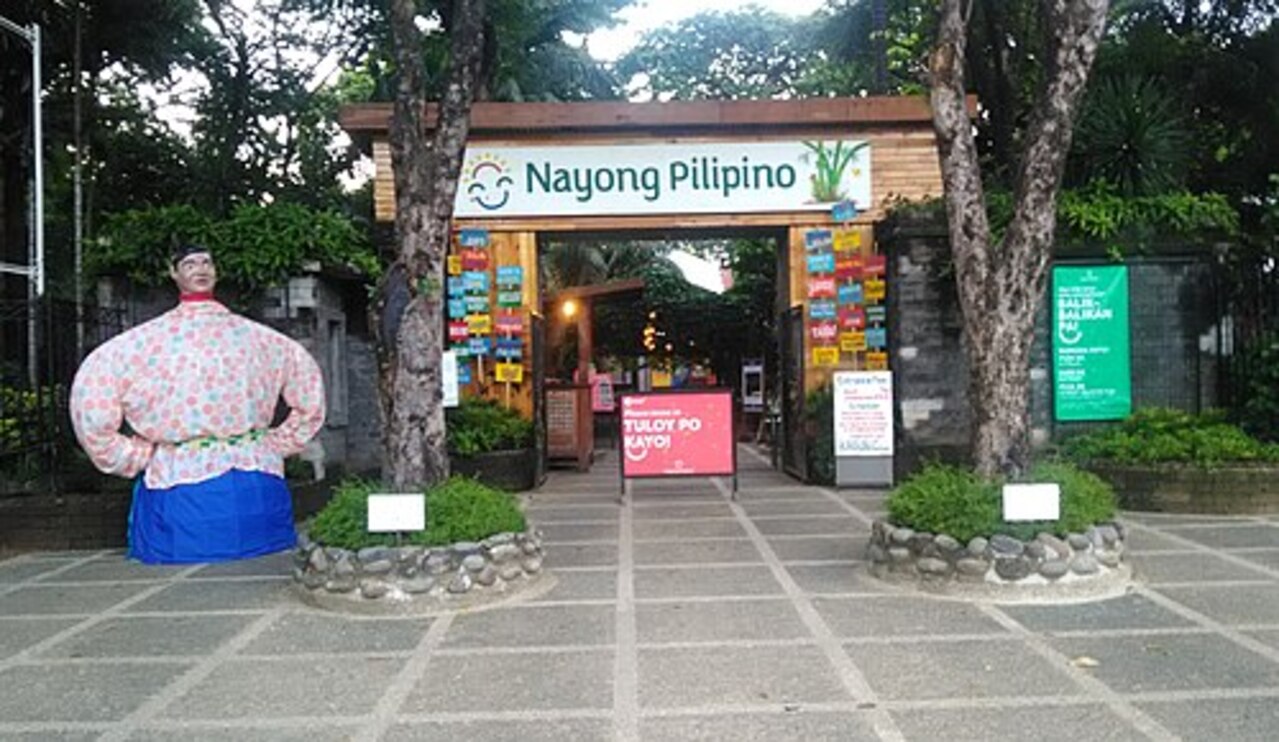The Nayong Pilipino Foundation, Inc. (NPFI) is a government-owned and controlled corporation under the Department of Tourism tasked with promoting, preserving, and showcasing Filipino cultural heritage. It operates as a cultural and educational institution that develops cultural parks, museums, and programs that highlight the diverse traditions, history, and creativity of the Filipino people. Through its initiatives, NPFI fosters national pride and supports cultural tourism by creating spaces where both locals and tourists can meaningfully engage with Philippine culture.
Originally established in 1972, NPFI began as a cultural park in Pasay City, envisioned to serve as a “living museum” of Filipino heritage and traditional architecture. Over the years, it evolved into a foundation supporting a broader range of cultural projects, including research, public art, and community partnerships. The public needs to know about NPFI because it helps in preserving the nation’s identity and in making cultural education accessible, especially in an age where heritage is increasingly at risk of being forgotten or commercialized. This article offers a detailed and informative look at what the NPFI is, what it does, and how it contributes to the development of Filipino identity through parks, heritage spaces, and cultural projects.
What is the NPFI?

Created by virtue of Presidential Decree No. 37 in 1972 under the administration of former President Ferdinand E. Marcos, the NPFI was established as a non-stock, non-profit public corporation. Its mandate centers on initiating and supporting research and development projects in the social sciences and humanities, while also promoting cultural awareness and tourism in the Philippines.
NPFI is headquartered at Plaza San Luis Complex, General Luna Street, Intramuros, Manila, and owns a property in Parañaque, located at New Seaside Road, Entertainment City.
NPFI’s Mandate and Objectives
The NPFI is tasked with the following:
- Initiating research and development in the social sciences, humanities, and related disciplines
- Developing social welfare programs to help improve the lives of economically disadvantaged communities
- Collaborating with both local and foreign sectors to gain financial and technical assistance
- Disseminating research outcomes for practical use in addressing societal issues
- Establishing scholarships and academic chairs to support cultural and educational advancement
- Creating parks and recreational centers that promote tourism
- Building and maintaining facilities like libraries, laboratories, and workshops necessary for cultural and scientific development
Vision
By 2034, NPFI aims to be the leading institution for heritage and cultural tourism in the Philippines.
Mission
- To develop cultural hubs and green spaces that serve as inclusive venues for recreation and creativity
- To strengthen the Philippine tourism industry through research, education, and training programs
Quality Policy
NPFI is committed to:
- Enhancing the competence of its personnel
- Managing resources efficiently for improved performance
- Supporting cultural tourism through innovative hubs and green open spaces
- Aligning with legal, ethical, and international standards for inclusive development
Core Values
At its core, guiding the foundation’s operation, are the following values:
- Inclusive
- Creative
- Integrity
- Innovative
- Sustainable
- Transparent
- Empathic
Logo
The Nayong Pilipino Foundation (NPFI) logo serves as a visual representation of the organization’s commitment to preserving and promoting Filipino cultural heritage. It features a stylized version of a smiling face, with a head of sun, showcasing the bright smiles that the foundation wants to promote. The logo, which was adopted as early as 2015, is used consistently across various official NPF materials and platforms, but in reality, there is very little data about the hows and whys of its design, design elements, and symbolism. For a more comprehensive understanding of the logo’s design and symbolism, it is recommended to contact the NPFI directly.
Organizational Structure
The NPFI operates under the supervision of the Department of Tourism and is governed by a Board of Trustees. This Board is composed of representatives from various government agencies and sectors relevant to culture, tourism, and education, ensuring a multi-disciplinary approach to decision-making. The Board oversees the foundation’s strategic direction, policy implementation, and major project approvals. Under the Board, an Executive Director leads the day-to-day operations of the foundation, supported by key management units such as Administration and Finance, Programs and Projects, and Cultural Affairs. This structure allows NPFI to function efficiently while aligning its operations with national cultural and tourism goals.
Key Programs and Projects
NPFI implements a wide range of cultural, educational, and tourism-based projects. These include:
1. Heritage Space
This initiative supports community-driven activities that showcase Filipino traditions, performances, and creativity.
2. Project Sambayanihan
A collaborative project that promotes cultural appreciation and resilience through partnerships with communities and artists.
3. Umpukan sa Nayon
A forum series that discusses cultural and social issues relevant to Philippine society.
4. Dunong: Nayong Pilipino Podcast
An educational podcast that explores Filipino culture, arts, and heritage.
5. Museo ng Nayong Pilipino
NPFI curates and supports several museum exhibitions and art projects under the banner of Museo ng Nayong Pilipino, such as:
- ENTWINED: Celebrating natural heritage and traditional basketry
- Panday: Honoring Filipino craftsmanship and tools
- Ulinigin and Unthread: Artistic explorations of Filipino culture and environment
6. Cultural Park and Developments
The NPFI has developed several cultural parks and initiatives to promote Filipino heritage and tourism to provide immersive experiences that celebrate the Philippines’ diverse cultural landscape. These include:
- Old Nayong Pilipino (Pasay): The original cultural park in Pasay showcased replicas of famous Philippine landmarks and cultural exhibits. It served as an educational and recreational venue until its closure in 2002 due to airport expansion projects.
- Nayong Pilipino Clark (Pampanga): In 2007, the foundation established a new cultural park at the Clark Freeport Zone in Pampanga. It features themed areas representing various aspects of Filipino culture, including replicas of historical sites and indigenous villages. It also hosts museums and performance spaces for traditional dances and cultural presentations.
- Nayong Pilipino Cultural Park and Creative Hub (Parañaque): The foundation plans to develop a cultural park and creative hub in Entertainment City, Parañaque, to provide a space for artists and cultural workers to collaborate and showcase Filipino creativity. The development faced delays due to the COVID-19 pandemic and other administrative challenges.
7. Research Institute
The foundation’s research division is committed to the study and preservation of Philippine cultural and natural heritage. It supports the following:
- Nayon: Journal of Natural and Cultural Heritage: A publication that shares studies and research findings related to heritage and sustainability.
- Project Pagsibol: An initiative that covers conservation studies and sustainability practices for heritage preservation.
- Pagsibol Reports: Documentations of ongoing and completed cultural research projects.
- Sustainable Tourism Framework for Natural and Cultural Heritage: A strategic guideline for responsible and sustainable tourism development.
- Research Summit: A platform for scholars, researchers, and cultural workers to share knowledge and build networks.
8. Cultural Leadership Institute
The Cultural Leadership Institute under NPFI aims to develop and train future cultural leaders through programs such as:
- MakaNayon Leadership Course: A training and formation program designed to develop cultural leaders who will champion the protection, promotion, and development of Philippine cultural heritage.
- Orchid Collection: a symbolic and botanical initiative for conservation and education)
Financial Assistance and Support
While NPFI is not a financial assistance provider in the traditional sense, it seeks and facilitates both local and international support to implement its programs. This includes technical and logistical assistance for cultural events, research grants, and community-driven heritage activities. By building partnerships and offering capacity-building workshops, the foundation helps sustain initiatives in heritage preservation, tourism, and education.
Legal Powers and Privileges
NPFI holds several legal powers that allow it to operate effectively:
- Ability to own property and receive donations
- Legal personality to sue and be sued
- Tax exemptions on imports and operations
- Right to build, develop, and maintain properties for research and cultural purposes
- Full corporate powers under Philippine law
Property and Land Ownership
NPFI owns and manages various properties dedicated to its cultural and educational missions. These properties cannot be sold or transferred without presidential approval. If NPFI ceases its operations or no longer needs the land, it automatically reverts to the National Government.
Transparency and Accountability
At the end of each calendar year, NPFI is required to submit a comprehensive annual report to the President and Congress. This report includes financial statements, sources of funds, and how resources were used in pursuit of its goals.
Current Status and Online Presence
Although the Nayong Pilipino Park is currently closed, the foundation remains active through digital platforms. Its initiatives, including podcasts, research, and virtual forums, continue to reach stakeholders and audiences online.
Visitors and researchers can access NPFI resources and updates through its official website.
Frequently Asked Questions (FAQs)
For your reference, here are some common questions and answers about Nayong Pilipino Foundation:
1. Is Nayong Pilipino open to the public?
The park is closed, but the foundation continues its work through digital initiatives.
2. Where is the foundation based?
The main office is located in Intramuros, Manila. The NPFI property is in Parañaque, at New Seaside Road, Entertainment City.
3. How can I contact NPFI?
For inquiries, visit their website and go to the Directory of Officials page to find email contacts. You may also reach out to them via the following:
Nayong Pilipino Foundation Inc. (NPFI)
- Office Address: 7th floor, 181 Natividad Almeda-Lopez St., BSP National Office Bldg., Ermita, Manila
- Email: info@nayongpilipino.gov.ph
- Facebook: https://www.facebook.com/nayongpilipinoofficial
- Youtube: https://www.youtube.com/nayongpilipinofoundation
Video: A Short Tour of the Nayong Pilipino Park – Clark Freeport Zone
The Nayong Pilipino Foundation Inc. remains a key institution in promoting cultural awareness, research, and heritage tourism in the Philippines. Through its parks, educational projects, research efforts, and support for local creatives, NPFI continues to shape a more inclusive and culturally rich Filipino identity, from childhood memories to national development. Watch this video to check out the NPFI Park and learn more about the Philippines’ cultural heritage:
